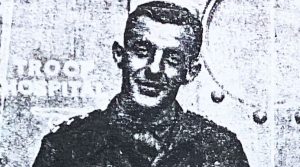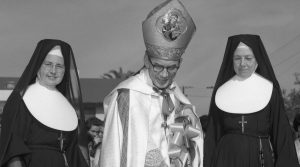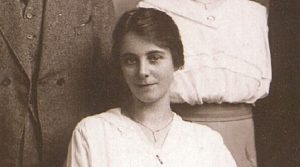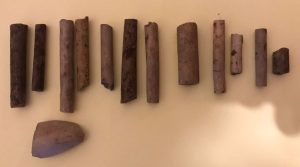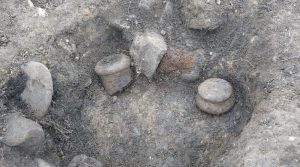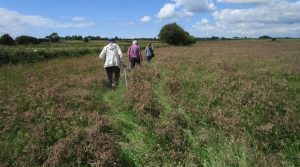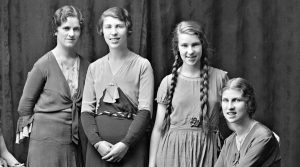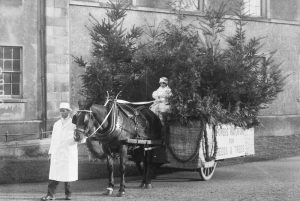Registration is now open for the Ulster Historical Foundation’s new Irish genealogy course, which runs from 17 November 2024 to 31 January 2025. The course programme features on-demand lectures, interactive sessions and a personalized consultation with an expert.
The Ulster Historical Foundation has launched an updated genealogy course for the 2024–25 winter season and is inviting family history enthusiasts to explore their Irish and Scots-Irish roots through a new series of recorded lectures, an interactive digital workshop, live Q&A sessions and a virtual consultation with a professional genealogist. This comprehensive course is designed to provide expert guidance every step of the way, and with winter approaching, there’s no better time to dive into your family history and expand your genealogical skill set.
A D V E R T I S E M E N T
Irish Genealogy Essentials
Running from 17 November 2024 to 31 January 2025, Irish Genealogy Essentials provides access to more than 20 pre-recorded lectures (over 28 hours of content) covering essential topics relating to Irish genealogical research, such as church records, civil records, census records and land records, along with many lesser-known resources, like workhouse records and school records. The newly updated lectures cover the most recent archival resources and record collections, while also teaching practical research techniques and strategies to help participants uncover their family history.
The upcoming course is delivered by a team of genealogical and historical experts: Dr William Roulston, Research Director at the Ulster Historical Foundation and author of several authoritative books on Irish history; Fintan Mullan, Executive Director at the Ulster Historical Foundation; and Gillian Hunt, Research Officer at the Ulster Historical Foundation. Each draws on decades of experience in Irish genealogy.
Sign up to our newsletter
Interactive workshop
As part of the Ulster Historical Foundation’s latest online course, a live interactive digital workshop session will demonstrate the practical use of online resources. This session will equip course participants with the skills needed to access, navigate and assess archives and records confidently.
Live Q&A sessions
Three live Q&A sessions will be scheduled across various time zones to accommodate international participants. This will allow attendees to connect directly with the genealogical experts teaching the course and gain insights into overcoming common research challenges.
A F F I L I A T E A D V E R T I S E M E N T

Personalized guidance
Participants will have the opportunity to engage in a virtual one-on-one consultation with one of the Ulster Historical Foundation’s genealogists. The consultation will be scheduled after the course’s completion. Experts will provide tailored advice to tackle the specific research challenges facing individual participants.
Flexible learning
Designed to be accessible from anywhere in the world, the course allows participants to progress at their own pace with 24/7 access to lectures throughout the course period and interactive sessions scheduled across multiple time zones. Participants will also receive downloadable handouts and a reading list. With this flexibility, participants can complete the programme at a time and place that suits them best.
Registration and costs
Priced at £374.99 (£349.99 for guild members), those interested can register for the Irish Genealogy Essentials course via the Ulster Historical Foundation’s website. The course will go live on 17 November 2024.
Summary of topics covered in the course
- Census Records: 1901 and 1911 census returns, plus surviving 19th-century census fragments.
- Archives and Libraries: Key archival sources, including the Public Record Office of Northern Ireland, the National Archives of Ireland and libraries.
- Irish Land Divisions: Ireland’s administrative divisions (townland, parish, poor law union, barony, etc.).
- Civil Records: Birth, marriage and death records.
- Church Registers: Baptismal, marriage and burial registers across major denominations.
- Church Administrative Records: Administrative records of the various churches in Ireland.
- Wills and Testamentary Papers: Background on will administration in Ireland and related records.
- Landed Estate Papers: Records related to estate management.
- Griffith’s Valuation and Valuation Revision Books: Griffith’s Valuation (1848–64) and subsequent Valuation Revision (or Cancelled) Books.
- Tithe Applotment Books and Freeholders’ Registers: Tithe applotment records from the 1820s and 1830s, tithe defaulters’ lists and freeholders’ registers.
- Registry of Deeds: Land title and lease records dating back to 1708.
- Workhouse and Local Government Records: Records of the Boards of Guardians (minute books, relief registers, emigration schemes, etc.) and 18th- and 19th-century local government records (grand juries, town commissioners, county councils, etc.).
- Graveyards and Gravestone Inscriptions: Key resources for gravestone inscription recordings across Ireland.
- Census Substitutes: Lesser-known early records, including old age pension search forms, 1740 Protestant householders’ list, 1775 dissenter petitions, 1796 flaxgrowers’ lists, agricultural censuses of 1803, etc.
- The Ulster Plantation: Records and resources related to the early 17th-century plantation.
- Occupation and Business Records: Business records and material on specific occupations and trades.
- Printed Sources: Newspapers, street directories, Ordnance Survey Memoirs and other printed sources.
- School and Education Records: Records from Ireland’s National Education system, private schools and schools supported by religious bodies.
- Law and Order Records: 1790s’ Rebellion Papers, police, local courts and prison system records.
>
Don’t miss the opportunity to deepen your knowledge of your Irish or Scots-Irish heritage – sign up here.
Sign up to our newsletter
Advertising Disclaimer: Irish Heritage News is an affiliate of FindMyPast – we earn commissions from qualifying purchases. This does not affect the amount you pay for your purchase.
Subscribe to the Irish Heritage News newsletter and follow us on Facebook, X, Instagram and Threads for all the latest heritage stories.
READ NOW
➤ A guide to navigating Northern Ireland’s church records
➤ Irish civil records: what’s online and what’s not online?
➤ Did your ancestor spend time in a workhouse?
➤ Bringing the 1318 Battle of Faughart and Edward Bruce back into focus
A D V E R T I S E M E N T







